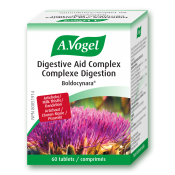What is Irritable Bowel Syndrome (IBS)?
A chronic condition of the gastrointestinal tract, IBS is characterized by recurrent abdominal pain, potential bloating, and changes to bowel function. For some, this could be constipation, while for others, diarrhea.
The Canadian Digestive Health Foundation estimates that individuals affected by IBS represent 2.4% of the total population of Canada, and some studies have shown it to affect nearly 11.2% of the global population!
How is the condition diagnosed?
Many primary care providers can determine this condition based on a thorough intake, but the ROME IV criteria are often used as well. Patients present with abdominal pain or discomfort for at least one day, per week in the last 6 months. They also have more than two of the following symptoms associated with the abdominal pain:
- The pain is improved with defecation
- The onset is associated with a change in the appearance of the stool
- The onset is associated with a change in the frequency of bowel movements
What are the causes of IBS?
The true cause of IBS is still unknown, but there are factors associated with the occurrence of the digestive issue.
Psychological distress plays a large role instigating episodes of IBS symptoms. More and more research is being published exploring the relationship between the gut and the brain, including the impact of stress on digestive function. Stress can encourage the release of pro-inflammatory agents throughout the body that could affect the function of the digestive system, including the speed at which stool moves through the tract, a characteristic known as motility. Co-morbid psychological disorders are present in approximately 40-80% of those suffering from IBS, with greater occurrence during periods of stress and adverse life events.
Some other research has looked at the microbiome, the environment of the gut including all of the hosts bacterial residents. Preliminary research indicates that those with IBS may have reduced stability and diversity of the species present in the gut, which could affect how the body handles digestion. The difference in species may also make the gut more sensitive to stimuli, including stress.
Studies have also demonstrated that a relationship exists between infections triggering the symptoms of IBS. This may make intuitive sense as infections of the gut can lead to alterations in the species residing there, inflammation, an increase in permeability, and changes in how the gut responds to nerve signals. All of these changes could potentially be implicated in the development of psychological disorders. For instance, those with depression or anxiety have high ratios of Firnmicutes:Bacteroides, two highly prevalent species. This same ratio was found in those with IBS, further demonstrating the intimate connection between the brain and the gut.
What can be done to prevent it?
As someone suffering from this condition, goals and intervention should help you move towards achieving regular, daily, and formed bowel movements by restoring the function of the gut.
Low FODMAP diets have been shown to have some benefit. These diets involve minimizing sources of :
- Fermentable Oligosaccharides
- Disaccharides,
- Monosaccharides,
- And Polyols
But more recent research has advised limiting only those foods that worsen the individual's symptoms. Following a strict diet and eliminating a lot of foods can often be stressful for the individual to follow as it changes their social experience when they go to a restaurant, their home experience if they cook and eat with family, and their trips to the grocery store.
Increasing fibre can help for those experiencing IBS with diarrhea as it can bulk up the stool. Currently, psyllium seems to have the most promise and other research has shown the plants other benefits in conditions such as high cholesterol, hypertension, and postprandial blood glucose in diabetics. Of note, you may experience some bloating or flatulence.
What about some symptomatic relief in the meantime?
Boldocynara is a complex of artichoke, milk thistle, boldo, and dandelion. Milk thistle has been shown to be a potent liver protector, the responsibilities of which include metabolism of fats, proteins, and carbohydrates, activation of certain enzymes, and other critical functions.
Artichoke has been shown to improve how well the body tolerates glucose, a simple sugar responsible for nourishing many of the cells throughout the body.
Boldo has traditionally been used for complaints of the gastrointestinal tract and helps digestion by inducing bile secretion from the gallbladder. Bile helps to breakdown fats into smaller droplets that are easier to digest by the intestinal cells.
Finally, dandelion intake showed a decrease in 'bad' fats present throughout the body as well as increasing 'good' fats. Taken together in a mix like Boldocynara is an easy way to achieve these powerful benefits, and by augmenting the digestive systems ability to break down the foods we ingest, the stress of processing large pieces is reduced. This allows the body to spend more time forming the stool and moving it through the tract at the appropriate time.
References
https://www.ncbi.nlm.nih.gov/pmc/articles/PMC3352839/
https://www.ncbi.nlm.nih.gov/pmc/articles/PMC4202343/
https://www.ncbi.nlm.nih.gov/pmc/articles/PMC4734998/
https://www.ncbi.nlm.nih.gov/pmc/articles/PMC5859043/
https://www.ncbi.nlm.nih.gov/pmc/articles/PMC6039952/
https://www.ncbi.nlm.nih.gov/pubmed/28624575





